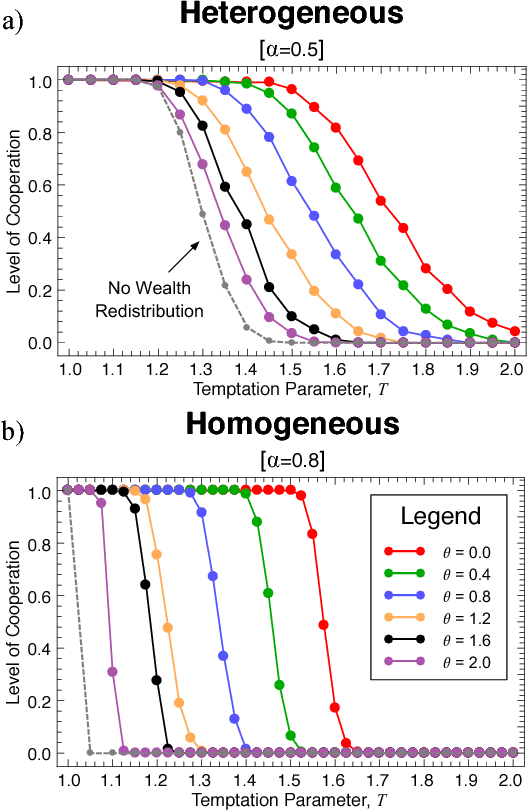Local Wealth Redistribution Promotes Cooperation in Multiagent Systems
Paper and Code
Feb 05, 2018



Designing mechanisms that leverage cooperation between agents has been a long-lasting goal in Multiagent Systems. The task is especially challenging when agents are selfish, lack common goals and face social dilemmas, i.e., situations in which individual interest conflicts with social welfare. Past works explored mechanisms that explain cooperation in biological and social systems, providing important clues for the aim of designing cooperative artificial societies. In particular, several works show that cooperation is able to emerge when specific network structures underlie agents' interactions. Notwithstanding, social dilemmas in which defection is highly tempting still pose challenges concerning the effective sustainability of cooperation. Here we propose a new redistribution mechanism that can be applied in structured populations of agents. Importantly, we show that, when implemented locally (i.e., agents share a fraction of their wealth surplus with their nearest neighbors), redistribution excels in promoting cooperation under regimes where, before, only defection prevailed.
 Add to Chrome
Add to Chrome Add to Firefox
Add to Firefox Add to Edge
Add to Edge